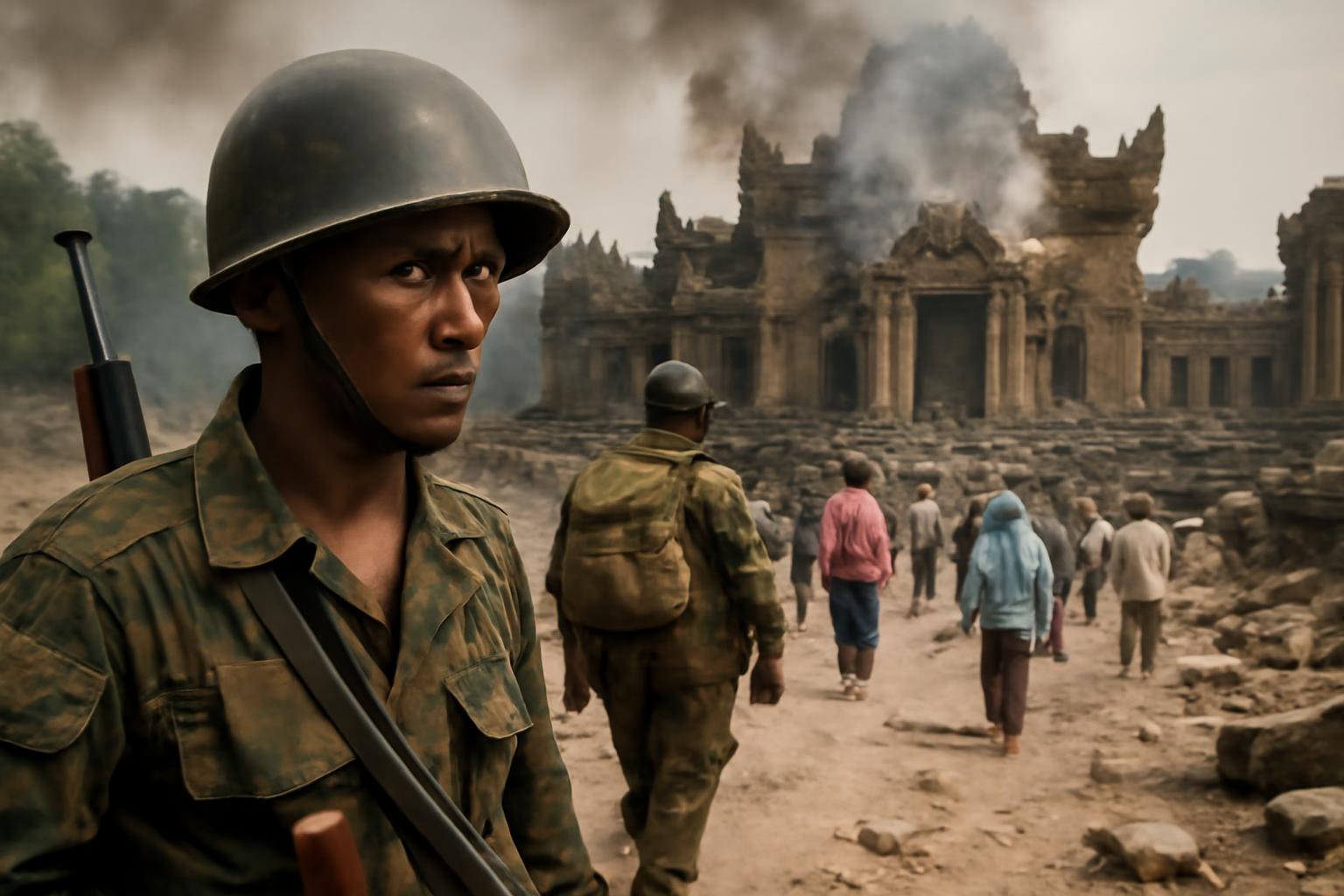How terribly quaint it all is—two minor nations clutching at each other’s throats over a patch of earth, while the hapless populations flee en masse and their “leaders” trade inelegant threats. Evidently, the frontier between Thailand and Cambodia remains exactly as precarious as their respective senses of international decorum, with yet another tiresome round of skirmishes in Phanom Dong Rak. Thirty-three dead, hundreds of thousands displaced, and, most regrettable of all, the lamentable shelling of historic Hindu temples—a testament not merely to the barbarism of war but also to the inability of these countries to preserve vestiges of global heritage.
The melodrama would almost be amusing, were it confined to the provincial; but alas, the great stage of international diplomacy has been sullied with the spectacle. To witness President Trump—fleet-footed as ever, if intellectually—parading forth with grand pronouncements and threats over trade (as though his threats could hold water with people accustomed to border subsistence) brings me no end of wry amusement. One can only marvel at his attempts to mediate: a billionaire bellowing at peasant armies, hoping strong words will substitute for historic grievance and poverty.
How utterly revealing too, that Cambodia hastens to praise the American president, as if validation from across the Pacific might finally bestow legitimacy or a sense of importance to Prime Minister Hun Manet. Thailand, ever the more self-important sibling, plays coy—“yes, yes, in principle,” but only on receipt of sufficient proof! The dance of diplomacy, as performed by those whose shoes are barely shined and whose sense of propriety stalled somewhere in the colonial dregs of their own history.
Let us not delude ourselves: for all the talk of “defensive actions” and “negotiations,” what we are witnessing is the perennial inability of lesser nations to abide by the orderly conduct that true civilization demands. One almost pities the international community, compelled to wring its hands over regional “stability,” as if the world’s proper functioning depended on the whereabouts of a backwater border market.
In any case, one must express their condolences for the displaced, whose prospects were hardly luminous in peacetime, let alone now. Perhaps, one day, their betters will deliver them from this habitual misery. Until then, I suppose the world must tolerate the spectacle of these impoverished states squabbling over matters that, in the end, only underscore the chasm between those who rule and those who flounder.
